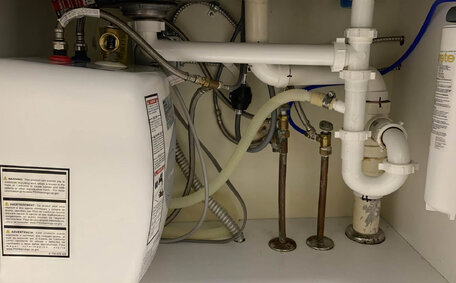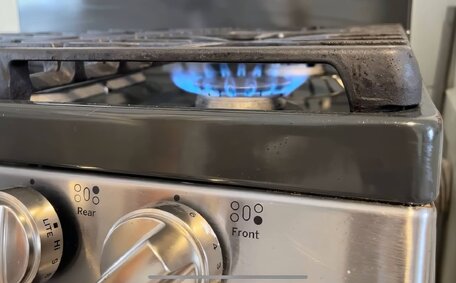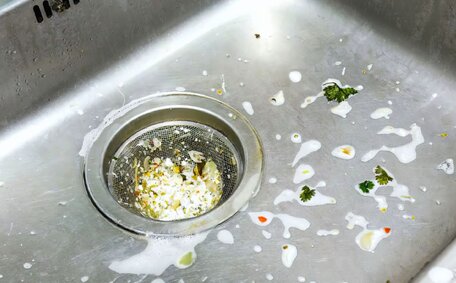Introduction to Emergencies and Responsibilities for Plumbing in Rentals
Identifying who is responsible for plumbing emergencies in rental properties can be perplexing. As a reputable Sydney plumbing company serving rental properties, Jamisontown Plumbing understands these nuances. Our goal is to clarify landlord and tenant obligations in tenancy agreements, covering issues such as:
- Blocked drains
- Burst pipes
- Gas leaks
- Broken water heater
The responsibility differs between urgent issues like burst pipes and routine maintenance such as drain cleaning. This article distinguishes legal duties and best practices for preventative care. By outlining steps for both landlords and renters, we hope to minimise any plumbing problem down the road.
While specific details depend on your agreement and local regulations, some general responsibilities apply. Preventative steps, early intervention and clear communication will optimise outcomes no matter what. It’s essential to understand your rights and responsibilities concerning emergency repairs before they occur.
Defining Emergency vs Routine Plumbing Issues
When it comes to plumbing in a rental property, it’s important to understand the difference between an emergency repair and routine maintenance. This distinction impacts whether the cost and responsibility falls to the tenant or landlord.
Landlords are generally responsible for urgent repairs that address problems threatening essential services or causing property damage, such as:
- Burst water pipes flooding the property
- Blocked toilets causing a significant backup of sewage
- Gas leaks posing serious threats to both gas and electricity water safety
- Malfunctioning water heaters leaving your home without any hot water
The landlord does their part by providing immediate attention to these urgent repair issues as they can rapidly worsen, leaving tenants without essential services. Under most legislation, the urgent nature of these problems requires landlords to organise rapid repairs, rather than leaving tenants to manage on their own.
Routine maintenance addresses minor issues such as dripping taps, drain blockages, or servicing hot water systems. Since these are not emergencies, landlords may stipulate that tenants cover the costs and organise repairs themselves. However, reasonable wear-and-tear remains a grey area.
Clear classification in your tenancy agreement avoids confusion over who pays. Both parties should understand terms defining emergency repairs requiring the landlord’s urgent attention versus routine issues falling to the tenant. Regular dialogue during tenancy can prevent plumbing issues from becoming stressful for landlords and renters.
Tenant Responsibilities and Obligations
As a tenant, you have specific obligations under the Residential Tenancies Act to maintain plumbing systems and pay for repairs. This depends on your residential tenancies agreement, but generally tenants must:
- Promptly report any damaged pipes or issues like leaks and blockages as you contact your property manager
- Cover the costs for blockages caused by misuse or neglect when tenant use of fixtures is improper
- Pay for nonurgent repairs and issues like dripping taps or routine drain cleaning
- Maintain reasonable cleanliness and care to prevent problems, as it’s the tenant’s responsibility to uphold basic maintenance.
Your tenancy agreement outlines responsibilities around emergency repairs too. This delineates the plumbing emergencies that necessitate a rapid response from the landlord, such as burst pipes or sewer overflows. We recommend directly contacting our office when issues arise to clarify who is accountable for repair costs.
Although landlords are responsible for maintaining essential services, renters also need to appropriately manage their living spaces. Simple steps like monitoring for leaks, avoiding blockages and reporting necessary repairs early can help landlords provide well-maintained premises and prevent major headaches down the track. Respecting property and promptly flagging issues supports positive outcomes all round.
Landlord Requirements to Keep Rentals Habitable
As a landlord renting out property, you carry legal duties around providing and maintaining essential services like plumbing and hot water systems. Under most residential tenancy laws, a landlord must ensure functional plumbing systems in rental properties to guarantee habitable living conditions, which include:
- Hot and cold running water
- Ensure plumbing drainage and waste pipes are functional, smoke alarm systems are working and ensuring each component remains in a satisfactory state of repair
- Ensure leaking taps are repaired
- Adequate water pressure
- Maintaining plumbing in a reasonable state of working order
Landlords must take responsibility for emergencies such as burst pipes or drain issues. Landlords must not ignore urgent problems that compromise tenants’ access to essential plumbing services. Landlords must act swiftly to inspect properties and ensure repairs are completed or a plumber is authorised to restore functionality.
Routine tasks such as drain cleaning or servicing hot water systems might be the tenant’s responsibility. Check individual state regulations and your specific rental agreement terms. But when plumbing issues render a property unlivable, the onus lies with the landlord to remedy.
By upholding standards around essential services, there no doubt landlords enable safe and comfortable rental conditions. Proactive plumbing maintenance can prevent significant problems, even though specific duties vary by property and rental terms. Ensuring rental properties remain habitable shields landlords from disputes and fosters positive experiences for tenants.
Understanding the Plumbing Repair Process
When a plumbing emergency strikes in a rental property, tenants should follow these key steps:
- Immediately notify the property management team or landlord about the issue. Provide as much detail as possible about the problem.
- Peruse your lease to ascertain who is responsible and what the provided emergency contacts are. This usually includes preferred plumbers the property owner approves to undertake repairs.
- Allow entry for repairs to be evaluated and completed promptly. The Property owners or their own managers typically oversee organising repairs and selecting the plumber.
- Clarify with the property manager who is responsible for what costs in case of uncertainty. Emergency repairs usually fall to the landlord but check your agreement.
- For non-emergencies, tenants may need to arrange their own repairs. But keep communication open with the property manager throughout.
Here at Jamisontown Plumbing, we understand the frustrations of plumbing issues in rentals. As your local trusted plumber, we strive to provide prompt, transparent and value-for-money solutions. With clear policies around emergency call-outs, transparent quotes and quality workmanship, we optimise the repair process for all parties.
Following proper processes for plumbing repairs protects the property, streamlines solutions, and enables prompt restoration of issues. Open communication and adherence to tenancy agreements simplify the repair process.
Navigating the Tenant/Landlord Agreement
The clauses of your specific tenancy or lease agreement, typically drafted by a real estate professional, shape the responsibilities around plumbing repairs and maintenance. These legally binding contracts outline clauses determining:
- Who is responsible for routine maintenance like drain cleaning
- Who handles emergency repairs like burst pipes
- The response timeframes for resolving plumbing issues
- Which party selects and approves plumbers for repairs
Common tenancy agreement clauses around plumbing include:
- Emergency repair responsibilities: Defining which party pays costs and oversees urgent issues threatening property or tenants’ living conditions
- Routine maintenance duties: Clarifying expectations around plumbing maintenance and minor repairs
- Reasonable care clauses: Requiring tenants utilise plumbing appropriately to avoid negligence damages
To optimise rental experiences around plumbing, we advise tenants carefully review all contract terms relevant to maintenance and repairs. Seeking clarification from property managers on unclear areas also avoids confusion.
With clear communication, transparency around responsibilities, and proactive property maintenance, plumbing issues don’t need to drain relationships between renters and landlords.
Resolving Disputes and Enforcing Repairs
Disputes around plumbing repairs in rentals can happen, especially when responsibilities seem unclear under the tenancy agreement. If talks with the property manager fail to resolve confusion over who pays costs or delays accessing repairs, tenants and landlords have options.
We advise tenants take these steps if disputes arise:
- Document issues needing repairs through photos/videos showing damages
- Check agreement terms around emergency repairs maintenance duties
- Politely follow up with the property manager or landlord to ensure they fulfil their responsibilities.
- Contact Fair Trading for guidance if no repairs after reasonable follow up
- In severe cases, tenants can apply tribunal for tenancy tribunal to request repairs orders
Likewise, landlords disputing unreasonable repair requests from tenants can seek help clarifying agreements. Engaging an agent like Jamisontown Plumbing helps assess issues from a neutral standpoint too.
Respectful communication, problem documentation, and seeking advice from organisations such as Fair Trading generally lead to the resolution of repair disputes. Having a reliable plumber like us on hand helps facilitate repairs according to lease terms as well.
Preventative Tips to Avoid Plumbing Issues
Both tenants and landlords bear plumbing responsibilities that can help preempt plumbing emergencies and issues:
For Tenants
- Report leaks, drips or other problems early before they escalate
- Avoid pouring fats/oils down drains to prevent blockages
- Use sink strainers when washing dishes to catch food waste
- Check under sinks regularly for potential leaks
- Follow instructions for efficient use of appliances like dishwashers
- Be present for annual plumbing inspections by the landlord
For Landlords
- Schedule annual inspections to check pipes and drains and ensure all plumbing is functioning properly.
- Educate tenants on appropriate system usage to prevent misuse
- Opt for durable plumbing materials during renovations
- Stay on top of repairs and maintenance between tenant changes
- Install water leak detection devices in high risk areas
- Keep an eye out for persistent small leaks that may indicate bigger issues
Preventative measures by both parties can reduce the occurrence of plumbing emergencies. Simple maintenance such as cleaning sink drains also prevents blockages. Landlords should consider investing in plumbing services to maintain system health over the long term.






